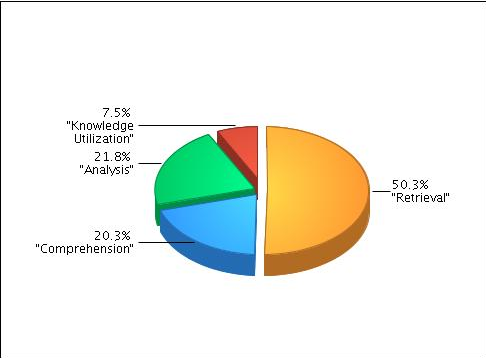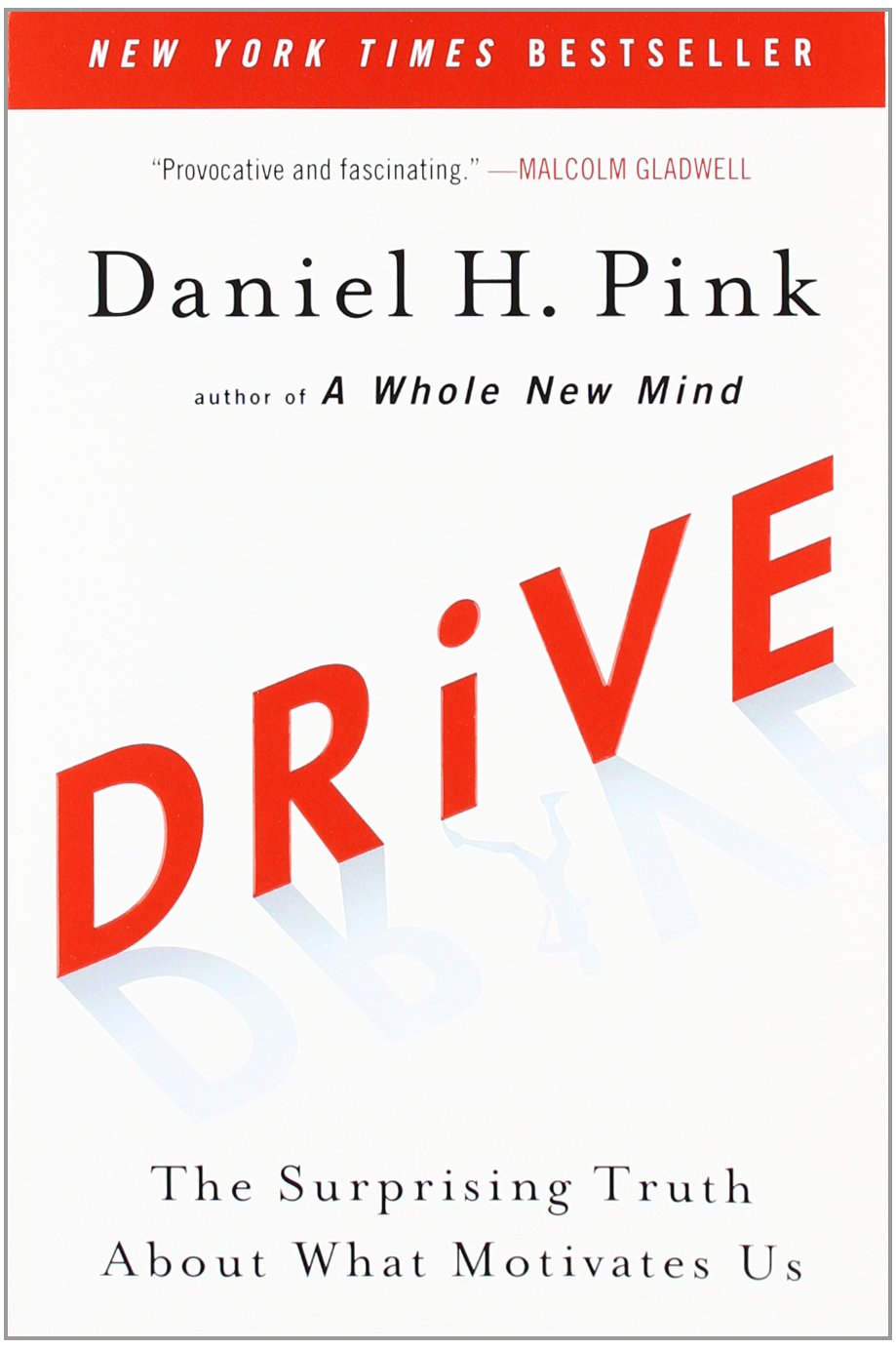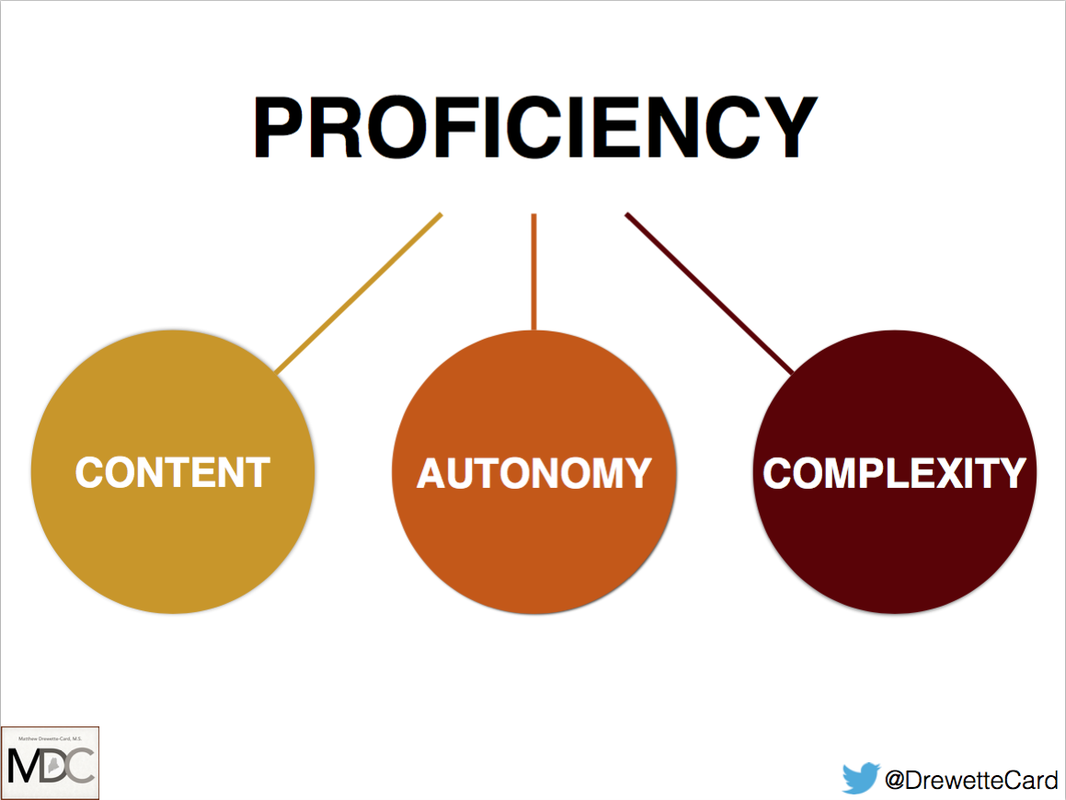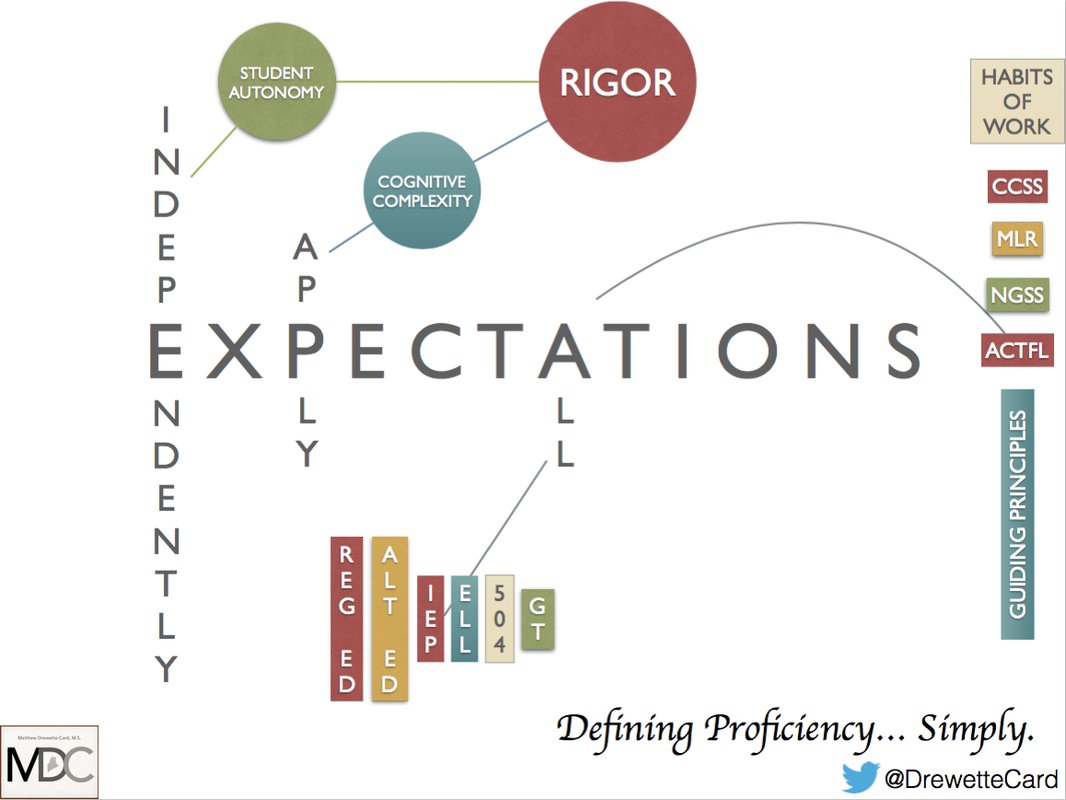This chart (above) shows the percentages of assessments at our high school, based on the levels of cognitive demand according to the Marzano Taxonomy of Educational Objectives. 70% of our assessments are at a Comprehension level or lower. This is a huge discovery, because deep learning happens when we are challenged to critically think beyond "execution" and "summarize." Our current work is involving understanding the criteria of proficiency, and how those criteria explicitly relate to the standards/learning targets we are working on.
This clarity of language has helped many educators throughout our district, not only be able to understand the tenets of proficiency-based learning, but to communicate these tenets to the parents, community, and, most importantly, the students. We are by no means 100% "there," and we still have a lot of work to do. But I also feel that having this grounded common language as a core piece that, when things go awry or when situations get difficult, we can come back to this common language, definition, and principle and move forward based on this simple, common idea.
Let me know what you think of all of this! -MDC
0 Comments
Leave a Reply. |
Matt Drewette-CardAOS #94 Curriculum Coordinator Archives
September 2019
Categories |








 RSS Feed
RSS Feed
